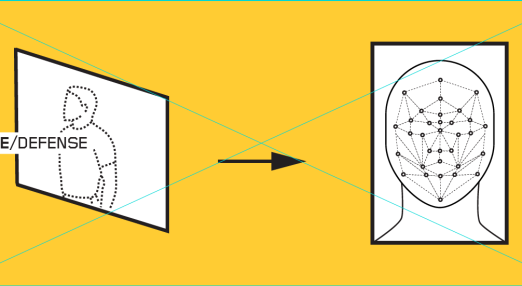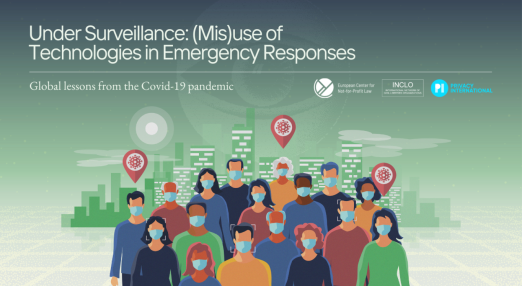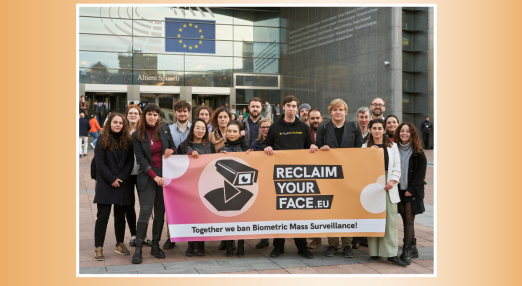SERBIA: Government retracts again on biometric surveillance
Another attempt to legalise mass biometric surveillance in Serbia was ditched by the government in a sudden U-turn just as 2022 was drawing to a close. In a little over a year this was the second draft law on internal affairs failing to pass the public hearing stage before its formal introduction to the parliamentary vote.
Filter resources
-

SERBIA: Government retracts again on biometric surveillance
Another attempt to legalise mass biometric surveillance in Serbia was ditched by the government in a sudden U-turn just as 2022 was drawing to a close. In a little over a year this was the second draft law on internal affairs failing to pass the public hearing stage before its formal introduction to the parliamentary vote.
Read more
-

Is the EU protecting people from Pegasus spyware?
Spyware is an extremely invasive surveillance tool and a global threat to human rights and democracy. Since the initial Pegasus Project revelations, we’ve learned that governments and private actors in over 46 countries worldwide, including EU member states, have used invasive spyware to target and silence journalists, human rights defenders, political opponents, and dissidents.
Read more
-

e-Evidence compromise blows a hole in fundamental rights safeguards
In December 2022, the Council and the European Parliament agreed on a final compromise text on the so-called ‘e-Evidence’ proposals. With major concessions given to the Member States’ position, the results of these trilogues negotiations are of bad omen for people’s rights and freedoms.
Read more
-

The UK will treat online images of immigrants crossing the Channel as a criminal offence
On 17 January, the United Kingdom (UK) government announced that online platforms will have to proactively remove images of immigrants crossing the Channel in small boats under a new amendment to be tabled to the Online Safety Bill. The announcement, intended to bolster the UK’s hostile immigration policy, has been met with concern among the British public and charities working with people on the move.
Read more
-

Under surveillance: (mis)use of technologies in emergency responses
In the months following the beginning of the COVID-19 pandemic, more than half the world’s countries enacted emergency measures. Within this broader context, we have seen a rapid scaling up of governments’ use of technologies to enable widespread surveillance. How has this impacted civil society groups globally?
Read more
-

What are the provisions of new policing draft laws
The SHARE Foundation has consistently advocated against the legalisation of mass, indiscriminate biometric surveillance for the past four years, particularly during the consultation process launched upon the withdrawal of the first Draft Law on Internal Affairs. A new draft with old fundamental issues is now before us. The public hearing is open until the end of December.
Read more
-

EU watchdog finds European Commission failed to protect human rights from its surveillance aid to African countries
The European Ombudsman has found that the European Commission failed to take necessary measures to ensure the protection of human rights in the transfers of technology with potential surveillance capacity supported by its multi-billion Emergency Trust Fund for Africa.
Read more
-

TERREG implementation in Romania: the Intelligence Service wants to become the police officer, prosecutor, judge and supervisor of the bailiff
An online publication discovered that another law proposal was used as a "vehicle" by the Senate Committee on National Security to propose new changes of the law for the TERREG implementation in Romania.
Read more
-

Update: UK’s Online Safety Bill heralds a trio of surveillance
The UK’s Online Safety Bill was back in the Westminster Parliament in December It had been stalled for five months whilst the new British government made a few changes. A Parliamentary debate on Monday (5 December 2022) revealed the shift in policy direction for the first time. It’s a relatively small change with big implications. Read more about the changes.
Read more
-

Legal challenge: The Serbian government attempts to digitise social security system
Organisations from across the world submit a joint legal opinion to support a Serbian NGO’s legal challenge to the Social Card law due to concerns over the right to privacy, the right to social security, and data protection.
Read more
-

Reclaim Your Face movement gathered in Brussels
Between 6 and 9 November 2022, more than 20 activists from across Europe gathered in Brussels to celebrate the successes of the Reclaim You Face movement. We got to meet each other in real life after months of online organising, reflected on our wide range off decentralised actions, and learned from each other how to couple grassroots organising with EU advocacy aimed at specific events and EU institutions. Read on to see what we did.
Read more
-

Warnings against arbitrariness and mass surveillance in EURODAC
Four Members of the European Parliament in charge of leading the negotiations sent additional questions on data protection related to the EURODAC proposal to the EDPS. This comes as a result of the concerns of fundamental rights violations raised by several organisations protecting the rights of people on the move, children and digital rights, including EDRi, in an open letter. Read a summary of the EDPS' answers.
Read more
